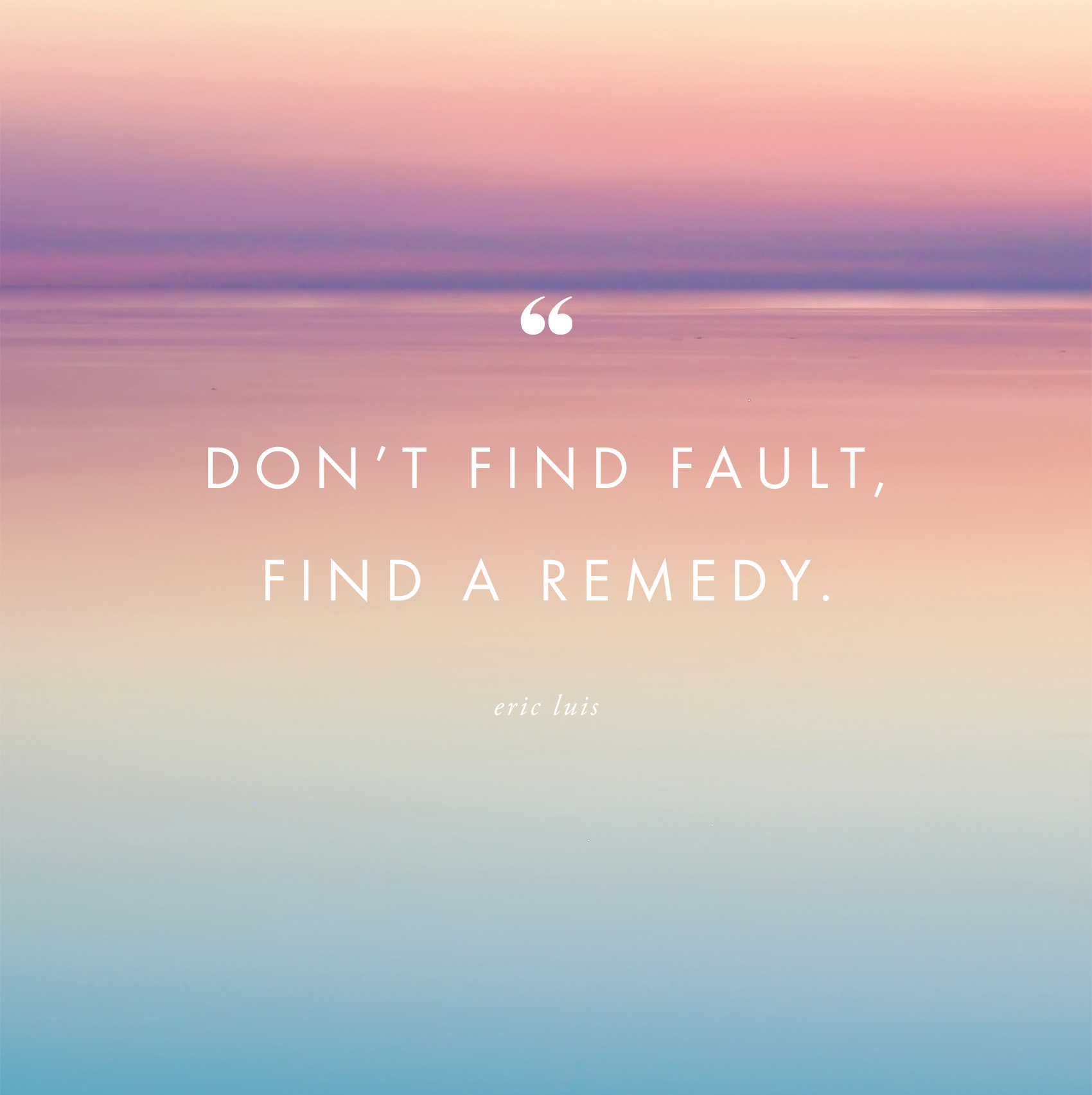
Oy, what a week. Should we talk about the election? I personally feel like I have to a little bit, because it feels strange to keep blogging as if nothing happened or the country wasn’t in turmoil these past few days. No matter how you felt about the election and its results, I think we can all agree it’s been a pretty intense week.
I’ve written this post in my head a bunch of times, but in the interest of succinctly summarizing what I was trying to write about, I highly suggest you read this great post — surprisingly, published last January. It’s about the fact that we all live in our own echo chambers. And our democracy doesn’t work as well because of it.
One thing that’s been on my mind a bunch the past couple of days is the idea of privilege. I think it’s worth recognizing that if we look hard enough, all of us can probably identify some place of “privilege” from which we come. Privilege colors our values and viewpoints, and when we have it whilst also living in an echo chamber, we inadvertently minimize the struggles and experiences of others.
Here’s a very personal example. Consider that I grew up as a minority in Texas, throughout the 80s and 90s. I was adopted and grew up in a caucasian family, but despite the wonderful life I was afforded, the fact that I looked different from the rest of my family was fairly obvious — and something other people always noticed and brought up to my face. Being made to feel different, whether it was unintentionally, or, in some really awful cases, maliciously, automatically means I bring a certain perspective to issues and stories that deal with people being marginalized. Add on being a woman, with all the modern day misogynistic experiences that can entail (which I’m sure many of you can relate to), and, well…you can imagine my reactions to Mr. Trump over the last year and a half.
But on the flip side, if I take a step out of my own bubble, I recognize I have “San Francisco” privilege. I live in a place very different from other parts of the country culturally, which naturally tends to give me a narrow viewpoint. I don’t have children; I work in a flexible job that provides me with a lot of freedom; I have no real debt to speak of. I can’t pretend to know the trials and tribulations experienced by many of my fellow citizens, who according to interviews and exit polls, voted a certain way because of the struggles they’re experiencing. I’m 1000% percent in my own echo chamber over here. I don’t mean to boil down the election to such simple differences and stereotypical examples, but just hope to illustrate ways in which we miss each other.
So I guess something that I’ve taken away from this past week is that staying curious, practicing empathy, and truly trying to listen to each other will be essential if we are to mend fences and find a way forward together, as a country. It’s counterproductive to be dismissive and to not try and understand each others fears and concerns. You’ll never get 100% of what you want in a democracy all the time, so if compromise is the way forward, I find the proverbial blow is softened if we come from a place of empathy. We don’t have to agree with one another on everything, but staying curious and recognizing that our experiences and “bubbles” color our values can at least provide us context, and a way forward together.
What’s next? No matter how you voted, how are you continuing forward personally? Here’s where I’m at:
It’s a small thing, but I’ve been trying to do thought exercises about privilege and empathy, starting with reading wonderful posts like this, which launched a fantastic, interesting discussion with over 1200 comments (read Emily’s follow up here, too)! I’ve reached out to a few organizations whose missions I believe in, to find ways to donate my time. I saw a Facebook post about a friend of a friend who is starting a directory for designers who are willing to donate their services to non-profits. And I’ve noticed a lot of friends talking about ways they want to get involved too, both with their communities and even simply in terms of respectful discourse with people they might not agree with. If nothing else comes from this highly contentious election, the early signs of increased involvement in our democracy will be a (hopefully) great thing.
If you haven’t already, consider paying for your news by purchasing a subscription to a newspaper. And here’s one that’s also been on my mind: stop using the mute and unfollow buttons on social media. What if instead of building the walls higher around our own echo chambers, we tried to engage with each other respectfully (private message ok!), to understand views that aren’t our own? If I write about this much more the essay will triple, but it’s worth thinking about how social media has eroded how we hear each other, and by extension, our democracy.
It’s still early days, and emotions are running high nationally. Within that, there’s so much potential for anger to boil over on both sides. So I’d end this with a link to a post my colleague Lisa wrote, and a reminder that if you see or hear something that you know to be antithetical to your values (harassment, violence, any of it, for any reason), please, speak up.
EDITED TO ADD: When I initially wrote this post, it was about three times as long. I felt like maybe I was rambling and meandering too much, but unsurprisingly, some of the things that were really on my mind have come up in the comments. Have a look there for additional perspectives, and I invite you to join in the conversation with fellow community members!
//
I’d really love to hear from you, your reactions to the week, your take on everything. The blog has always been an inclusive, respectful community, so it should go without saying, but please keep the conversation (and discourse!) respectful, civil, and kind. All in the vein of trying to hear each other and understand, ok? Wishing each and every one of you a peaceful weekend.






This post really resonated with me, even though I’m as white and middle-class as they come. I do however teach at a school where the majority of students are minorities and low-income, with a large portion being immigrants. It’s made me increasingly aware of my privilege and of how even the most well meaning liberals don’t always understand when they are coming from privilege.
I’ve had a lot of well-meaning liberal friends post things like “it’ll be okay” or just tell your students to vote. My students are asking questions like what will happen to me if my parents get deported? Why do people have so much hate towards us? Am I safe? It very well may not be okay for them. Telling them to go volunteer is a very tone deaf response to the reality of many people’s current situations.
So many people on both sides don’t recognize their bubbles or that there are different levels of people who will be impacted by this election. My friends will post things of how outraged they are or that as a woman they are personally insulted. It seems really ridiculous when compared to my student who broke down in tears today because she’s afraid her family will be torn apart.
Hi Kellie — Thanks so much for your comment and for sharing your experiences. I can’t imagine how tough it must be at work right now. Teaching can be a job filled with trials and tribulations in the best of times, so please know I’m thinking of you and your colleagues.
Beyond the near-sightedness of people on both sides, my sense is the folks (even me) who talk about getting involved in their communities or volunteering comes from a place of feeling truly helpless. I feel completely heartbroken and scared for immigrants and their families, but simultaneously feel lost in terms of what I can do to prevent the unthinkable. Donating my time to help these and other causes I believe in — for me at least — helps me feel like I could make the tiniest bit of difference. Through your work as a teacher, have you guys been given any resources or suggestions for how to help further? I’d be curious to hear how the experiences have impacted your own work and that of your colleagues too. Thanks again for sharing.
I’ve read this tweet and I think it summarizes exactly how I feel about all this tolerance/respect other’s opinions/let’s try to understand each other’s POV:
“Please stop telling people to respect others’ opinions. That’s for things like “I don’t like coffee” not for “I don’t like black people.”
I think most people are missing some huge problems here, like Americans kids whose parents are illegals and could be deported, or the freedom the KKK has to spread hate because of the 1st amendment. America needs some changes that are way beyond who’s the President, and should be addressed asap.
Hi Angie — thanks so much for your comment. I agree, when we are talking about pure, unadulterated racism or bigotry, there should be no empathy or tolerance involved. I probably could’ve made that more clear above.
Here’s what I was trying to get at. One thing I’ve been thinking a lot about (but opted not to include in my post for fear of rambling on foreverrrrr and losing people, so here we go!) is this idea of a morality continuum. For me personally, the things Mr. Trump has said/done and the actions of some of his supporters — which he has all but condoned — immediately disqualify him for a position of leadership in which one must represent many. With that, I personally think Americans should agree that certain things — straight up religious intolerance, racism, misogyny, bigotry, xenophobia — should be so far to one side on the moral continuum that we refuse to accept them in the face of any other positive gains.
When results were rolling in Tuesday night, I kept asking, “How could anyone find his behavior acceptable?” What I’ve realized over the last couple of days (and where the idea of privilege comes into play) is that many of his supporters who do NOT condone his racism/bigotry, nor that of fellow supporters, voted for him with other interests in mind — often economic.
In my disappointment Tuesday, I said to Joe, “I could never put getting a better job over making so many of my fellow citizens feel completely marginalized and discriminated against.” While I still feel this way, reading post-election coverage about so many people that I never hear from was enlightening. Again, I stress — these are not citizens who have participated in hate-filled rallies, and have been adamant that they don’t agree with everything Mr. Trump has said and done. But they are people who have experienced long bouts of unemployment, or can’t feed their families, nor pay for medical care, and see a bleak future. Maybe people in these situations are willing to look past the racism on their own moral continuum, because even though they don’t like it, feeding their family is more important (the irony being, of course, that people voting with the interests of their own futures in mind jeopardized the futures of fellow citizens). I can disagree with someone who reconciled their vote in this manner, but I can also acknowledge that I’m not in a situation in which I’m forced to make that decision (a privilege). In other words, I place various issues on my own moral continuum in one order, but recognize it’s not the same for others because their circumstances may dictate otherwise. The reason as to WHY these issues end up in such different places is what I’m interested in, and we can only understand that if we’re willing to empathize and listen to one another. When that happens, maybe as a society we can move the needle further, so that EVERYONE agrees some issues of morality are so absolute, that as a country, we are not willing to compromise on them.
There are also many supporters of Mr. Trump who voted for him for other reasons, without giving much consideration to the intolerance aspects (disagree with them as they might). For example, growing up in Texas, my Facebook feed is often flooded with people who fear losing their right to bear arms, and voted for Mr. Trump in the interest of protecting gun rights. And so we circle back to learning empathy and recognizing privilege, and having a discussion about morality. While I’m 99.9% sure I may not agree with the person who voted this way, I AM interested in understanding how they reconciled this decision, if they truly claim to not support Mr. Trump’s many moral faults. Maybe in being open to hearing that person’s point of views, they’re more open to hearing about my own experiences, and it opens their eyes to their privilege. Does that make any sense?
So maybe in trying to understand where other people are coming from (that is, the people who AREN’T spray painting swastikas in public spaces…), we could talk more about morality, and better define what should be absolutely unacceptable as a society.
But all this shit, sadly, feels like an uphill battle.
— Pondering continues —
I’m still so devastated and outraged by the results and keep trying to do things to help, though it’s incredibly frustrating to feel like I have such a small voice. But, one thing we can all do (that is TOUGH to see the results of) is take the implicit bias tests https://implicit.harvard.edu/implicit/takeatest.html . I was a bit shocked by my results, but better to be aware than unaware, in my opinion. As a liberal Bostonian in pursuit of her Masters, I also put Hillbilly Elegy and Strangers in Their Own Land on my list at the library to try to understand where people are coming from, even if every fiber of my being says that they’re wrong in how they voted (and, how some have been acting), I’m trying to get out of my echo chamber so I can more effectively change hearts and minds, but man, it’s hard to get past the wall of anger, frustration, and deep sadness. I dread the next four years, and am particularly frightened of the next two, but I will do whatever I can to make sure everyone feels welcomed and at home in the US.
I think you made a great point, but I just can’t seem to find any justification, in any way, for voting for a racist, xenophobic, sexist, self-described sexual assault-er, (among so many other vile things), no matter what your economic status or frustrations with the establishment or whatever. Everything you said makes perfect sense for the election of a Republican president following two terms of a Democratic one, but to vote for this particular candidate – there’s no understanding that. His years and years of vile and criminal behavior should have overrode the desire for “change” (which of course he will not bring anyway, since he is a proven liar). I can empathize with people’s situations but I think they’ve made a very, very big and costly mistake.
You posted this as I was writing my long ass answer to Angie! See above. :) And thank you so much for sharing your point of view, I really value it. Everything you said was my personal reaction as well, both throughout the campaign and on Tuesday. In writing this essay, I guess I’m saying I want to figure out how and why people did make that justification, even if they say they don’t agree with the repulsive things that were said/done. There has to be a reason — so what is it, how does it play into our individual values, and values we theoretically should all hold dear as a nation? If we have that conversation, maybe we find ways to move forward as fellow citizens.
Ughhh, this just kills me! Because you’re making such good points, but the thing is, HILLARY could have helped these people! (the ones who aren’t monsters, but rather looking out for their own economic interests). I truly believe that she would have. And instead, they voted for a con artist who promised them tons of things, econcomically and otherwise, and he flat out ISN’T going to deliver on these things. I saw something on Twitter where the WSJ or some publication said something like “Wall Street wins big with Trump’s election.” These people in the Rust Belt think that Trump, in his literally gold-swathed tower, is going to represent the interests of the Everyman? They got so, so duped. And then at the same time, while these people, who maybe aren’t racist and sexist and all of the other things, got their candidate, the alt-right and the racists got their disgusting views encouraged.
What you said about a moral continuum explains the CNN report that I saw where one of their anchors went and spoke to a group of white women in the Midwest after the Access Hollywood video came out, and they said they literally did not care about it at all. I was appalled, but we can chalk it up obviously to the moral continuum – good point.
Another interesting view I saw explained on CNN yesterday by a political writer Jake Tapper had on (whose name I can’t remember unfortunately, Salina something). She said the people who voted for Trump took his horrible statements seriously, but not literally, whereas the media took them literally, but not seriously. So when he said he was going to deport all Muslims, his voters didn’t take it literally, they took it to mean something like well, what he MEANS is, he’s just going to deport the bad guys and protect the country. Whereas the media took it literally (as I think any normal person would and should), and started fact-checking whether you can actually do that and whatnot. That explains how people could vote for him – I mean as you said, not all of his voters are hate-filled monsters. What’s fundamentally WRONG about that I think is represented in so many things I’ve seen over just the last few days – young kids in a school chanting “build that wall,” Muslim kids being bullied and threatened, students at a university who celebrated Trump’s win by dressing up in blackface and posing in front of a Confederate flag. Yes, that actually happened. SOME people might not take his words literally, but words have meaning, and clearly some people do take them literally and they see it as encouragement of their horrific views. And why shouldn’t they, when the soon to be President of the United States espouses them?
Sorry for rambling…and clearly you are more accepting than I am! I’m just not ready, yet, to look for a path toward understanding. All I can think about is all of the angry old white men who think the country was better back in the 1950’s and are looking for Trump to take the country back to that.
I love this post, Victoria! Roxanne Gay echoed similar sentiments in her book Bad Feminist. We all come from some place of privilege, and on the reverse of it, we all come from some place of hardship.
I’m an independent voter, and voted for Bernie in the primary. I’ve never been a fan of Hillary for several reasons, but the emails and primary collusion with the DNC were actually a big deal for me. When I was deciding if I would vote for her or not (because Trump was never an option), I would waver. At times, I appreciated her more than before, and at other times, I thought she stole the primary from Bernie. In the end, I did vote for her, but relunctantly.
After she lost, I felt a tremendous sense of sadness for her, which surprised me. She’s lived a very priviledge life and has great opportunities, but there is something about this lost that feels awful.
It’s easy to say the Trump supporters are racists. There’s been a few news stories over the past few days of hate crimes. There’s two things to remember. First and foremost, we are all individuals and should be judged by our individual actions. Secondly, based on the exit data compared to previous years, the same people who voted for Trump this year, voted for Obama in 2008 and 2012.
For most Trump supporters, I want to believe they looked past what he said. Partly because they wanted something different, but also I think a lot of Americans don’t view words as significant as actions. They can look past words; they can’t look past actions.
I’m a Black Woman who was born in the Southern US, and as much as I LOVE the south, it can be so tiring to have to deal with all of the racism. I deal with racism more than sexism personally, so it’s a very touchy subject for me, and I make a lot of decisions based off of fighting racism, explaining it, or doing what I can to help it go away. I’m an open book when it comes to people (respectfully) asking about the true effects of racism in the U.S., because a lot of people aren’t really aware of how deep it runs. I realized this when people were so shocked that so many Americans voted for Trump. I was of course disappointed, but not surprised because I’ve run into a lot of racist people who identifies with the hate he spews. We definitely need empathy, and a chance to really get outside of our comfort zone for change to happen! Love your blog! Longtime reader.
Hi India!
I’ve grown up in a very sheltered part of America. Majority of my high school is very white and liberal; while there is certainly racism against Hispanics– I live in the Southwest, so they are the most common minority group–it is not to the extent I hear about occurring in other parts of the country.
That said I am well aware racism exists, despite not seeing the reality of it everyday. I don’t understand when white people say that racism is a thing of the past–do they not watch the news or read?!
Anyways, I would be interested in hearing any additional thoughts you have since while I can watch the news and understand that no, racism didn’t end in 1965, I still don’t have a full understanding of what is means to be black in America. I read somewhere online that the fear many white Americans are feeling as a result of the election is how it feels to be black in America all the time.
I commented on India’s comment, but would like to add in my own 2 cents on the election in general as well.
I completely agree with you regarding the fact that we all live in our own echo chambers; I certainly do, as a white female having grown up in a very liberal area. To me, the idea that anyone could look past Trump’s racism, sexist, homophobia, and ethnocentric language is befuddling. I understand that Middle America feels as though it needs to be heard, but in my opinion, Donald Trump is not the answer to their prayers. Hillary Clinton is a far stronger choice if you are looking to improve your economic situation. There is no way Trump is going to bring manufacturing jobs back. That ship has long since sailed; if we made goods in America, they would be far more expensive, and majority of Americans would be unwilling to pay the extra money for them. So instead of looking to the past and seeing lost opportunity, I believe we need to look to the future and see all of the opportunity we’ve gained. The service sector of the economy is booming and, since Obama made community college free, many Americans are now qualified to work jobs they wouldn’t be able to before. If Hillary won, I believe she would have furthered that plan and started decreasing the price of state universities.
I’ve been really disappointed in the results of this election from both that perspective and another one; electing a bully into office only encourages more mean behavior in this country. I am 17 years old and a high school students; some of the Hispanics at my school have reported kids telling them to “go back to Mexico”. Kids, myself included, having been openly crying in class. To many of us it feels like the love and compassion we believe existed in this country is gone, at least for 50% of the population.
On the bright side, I am really happy about the election of Toni Gabbard, a Hindu women, to the US House! I vote her for Michelle’s (or, more likely, Corey Booker’s) running mate in 2020;) And Kamala Harris won the Senate seat for California! Oregon also has an LGBT+ governor, so there are some things to celebrate.
Thanks for your insight Victoria. As with most of America, I have been grappling with the results from this election for the past week. I like your explanation of a “moral continuum” but knowing there are people out there who don’t think Trump’s vitriol and racist comments are that big of a deal literally makes me sick to my stomach.
I read this article from Slate today and it really sums up my feelings perfectly about Trump voters.
“Hate and racism have always been the province of “good people.” To treat Trump voters as presumptively innocent—even as they hand power to a demagogic movement of ignorance and racism—is to clear them of moral responsibility for whatever happens next, even if it’s violence against communities of color. Even if, despite the patina of law, it is essentially criminal. It is to absolve Trump’s supporters of any blame or any fault. Yes, they put a white nationalist in power. But the consequences? Well, it’s not what they wanted.”
http://www.slate.com/articles/news_and_politics/politics/2016/11/there_is_no_such_thing_as_a_good_trump_voter.html